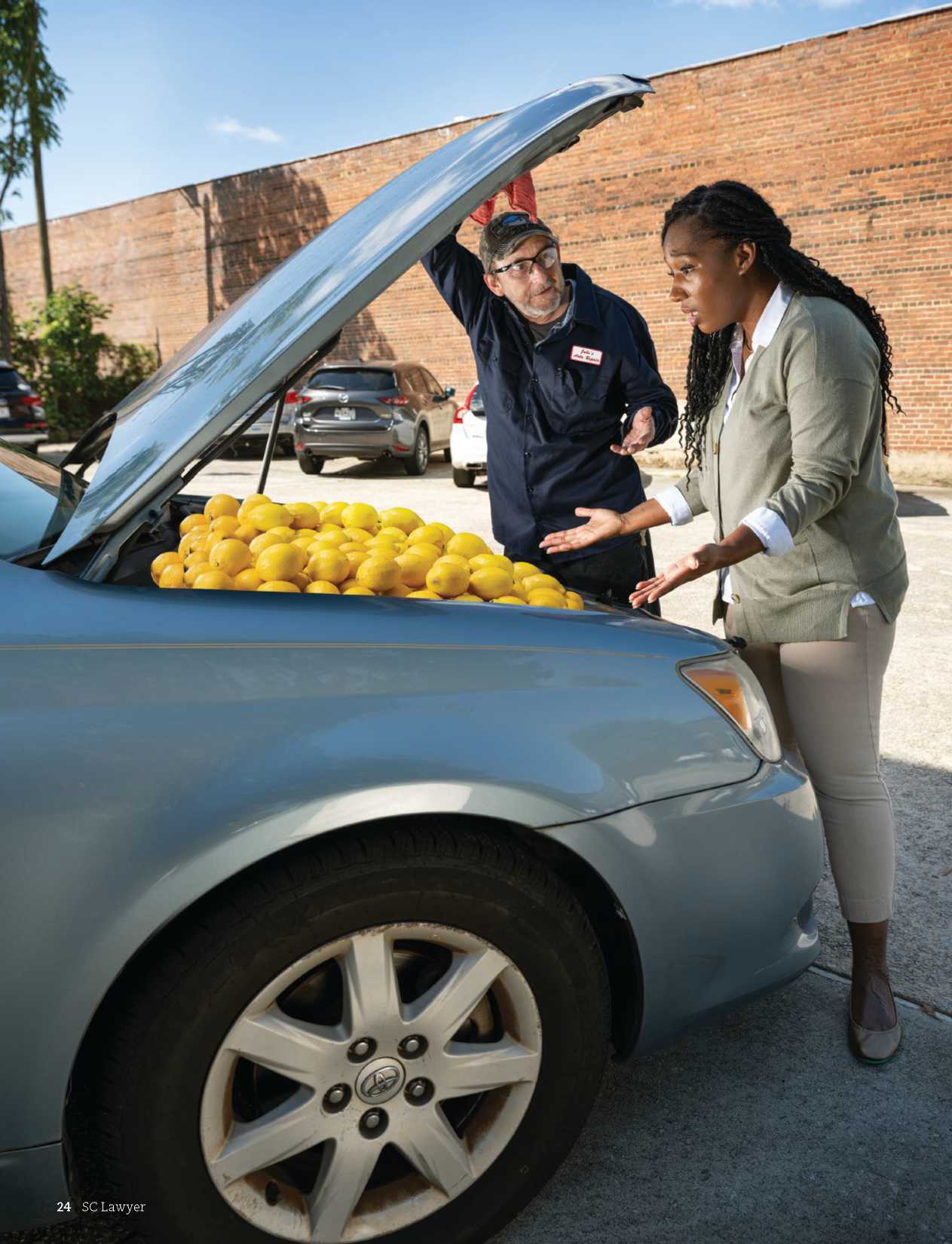Lemons Without a Lemon Law
| Publication year | 2022 |
| Pages | 24 |

Lemons Without a Lemon Law
Assisting Consumers with Used Car Automobile Fraud
By William K. Geddings
In South Carolina, if your new vehicle is mechanically deficient in the first 12 months or 12,000 miles, the manufacturer is required to repair or replace the vehicle (with some caveats that are outside the scope of this article)[1]. However, South Carolina does not have a lemon law for a vehicle that is purchased used. This does not mean that a South Carolina consumer lacks recourse when he or she purchases a used vehicle that is mechanically unsound. This article will attempt to shed light on some of the more common practices involved in the sale of used vehicles and how these practices can give rise to recourse for the consumer.
I. The Truth-in-Lending Act
The Truth-in-Lending Act ("TILA")[2] is a federal statute that requires lenders to disclose the number of terms, including the term of the loan, the interest rate, the finance cost, and the monthly payment. This information generally appears on a standard form and is provided to the consumer as a matter of course. Even if the consumer states that this information was not provided, the odds are that either 1) the information was received and lost, or 2) in the rare case that the information was not provided, the dealer has a signed copy of the TILA disclosures that it will claim were provided at sale. This does not render TILA useless to the auto fraud practitioner. In cases where the consumer purchased optional items, such as a service contract or GAP insurance, the dealer often violates TILA without the consumer's knowledge. When a dealer sells optional products, it routinely charges the consumer a premium and pockets the difference between the price paid and the dealer's cost. The Fourth Circuit has stated that this practice, when done without the consumer's knowledge, is a TILA violation.[3] Aslmost universally, automobile dealers fail to disclose that the dealer itself is making a profit off the sale of these products.
When a consumer presents with paperwork that indicates the purchase of extra products, the practitioner is given an opportunity to leverage the inevitable TILA violation into assistance for the consumer. This information is contained in the funding fax that the dealership received from the lender at the time of sale.
II. The Yo-Yo Sale and the Equal Credit Opportunity Act
The Yo-Yo Sale is one of the most common deceptive practices employed by used car dealers throughout South Carolina. A Yo-Yo Sale involves the consumer going to a dealer, and by way of dealer financing, agreeing to purchase a vehicle. The dealer tells the consumer that the financing is approved, has the consumer sign the required paperwork, gives the consumer the TILA disclosures, and then sends the consumer away. A few days pass and the dealer calls the consumer "telling them that the "˜financing has fallen through.'" The dealer needs the consumer to come in and put more money down, provide a co-signer, or agree to terms at a higher interest rate. The dealer is relying on the consumer not wishing to dispute the dealer's allegation and/or not wishing to have to tell friends and family that the vehicle was taken away due to the consumer's purported bad credit. In the event that the consumer is willing to return the vehicle, the dealer will often refuse to refund the consumer's down payment or will...
To continue reading
Request your trial
